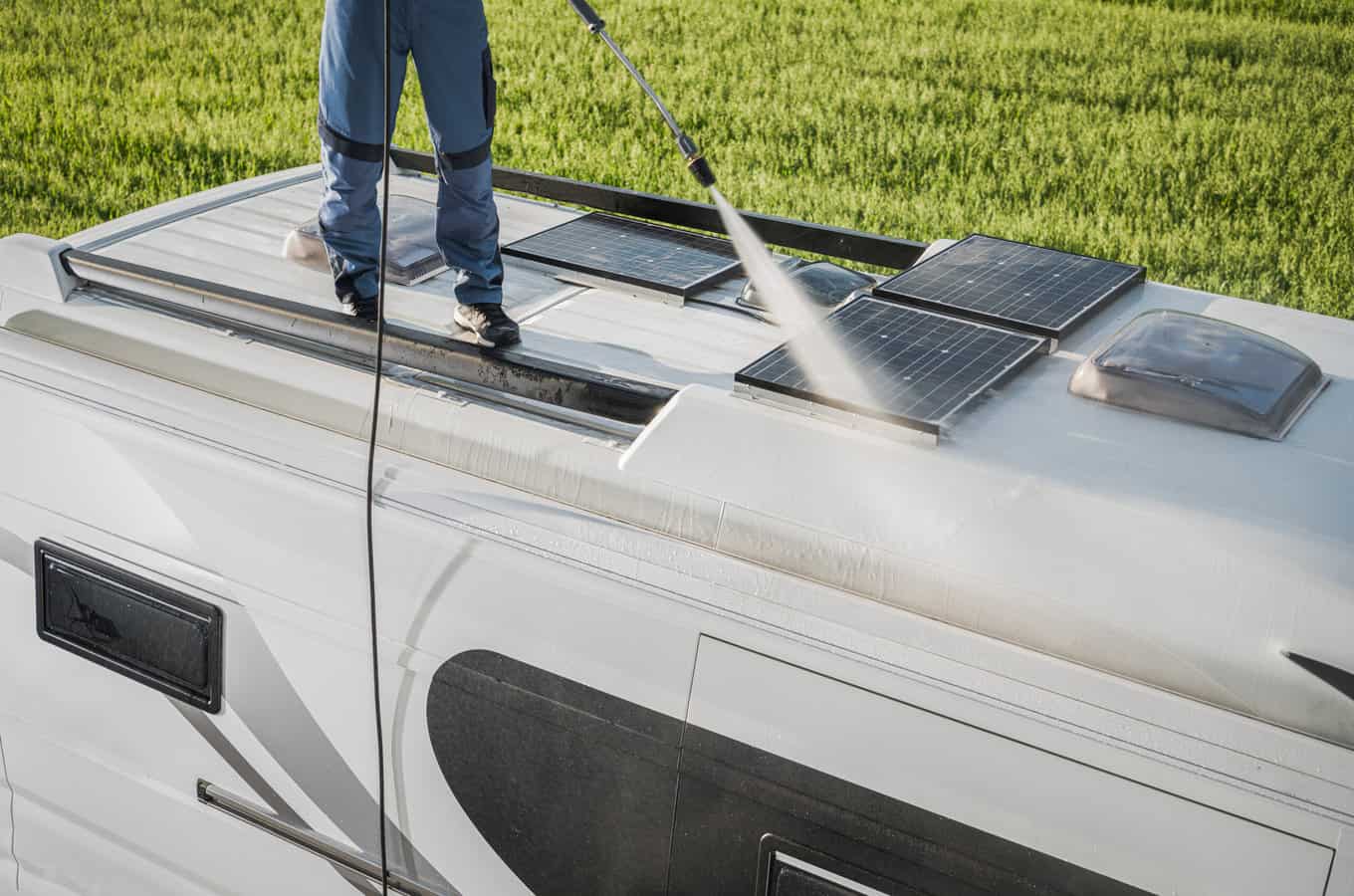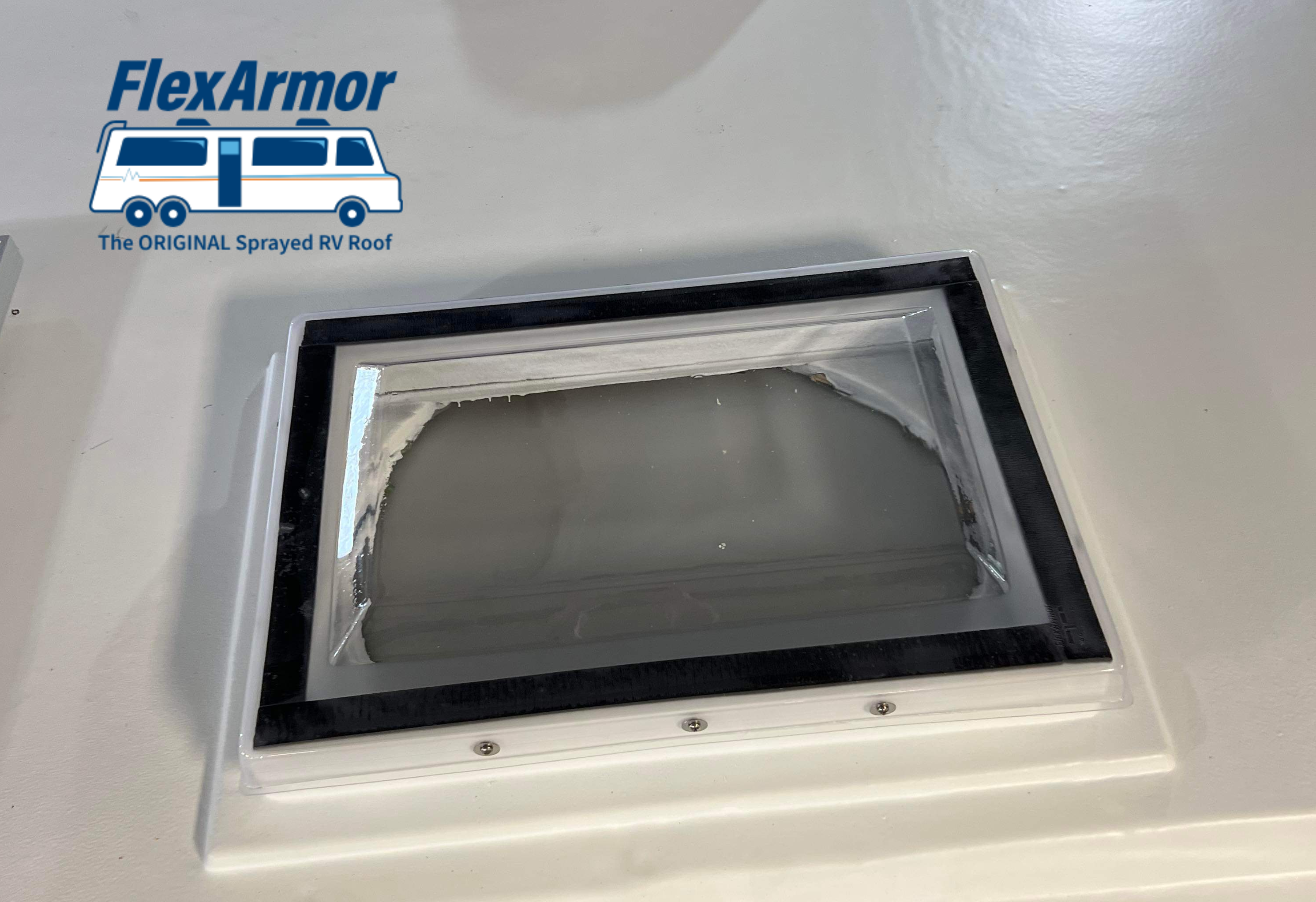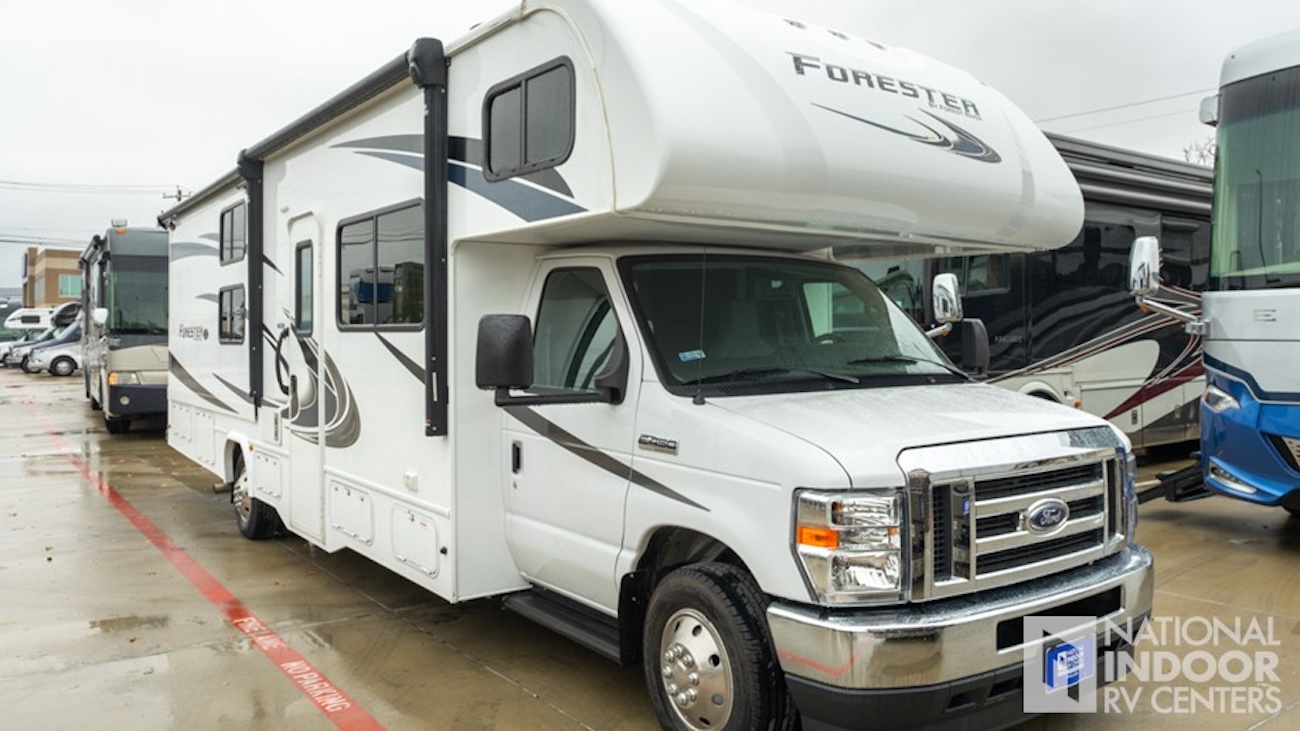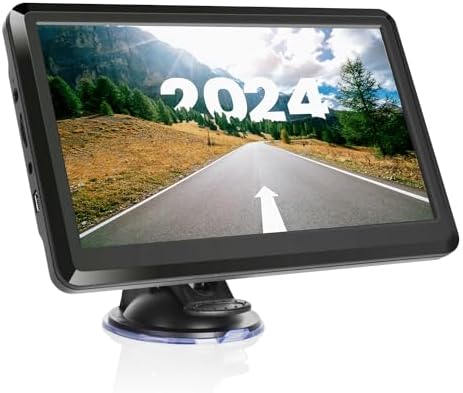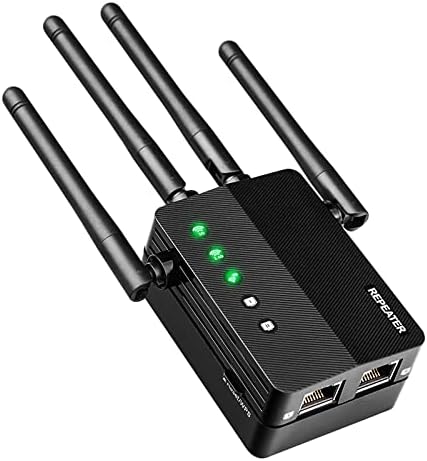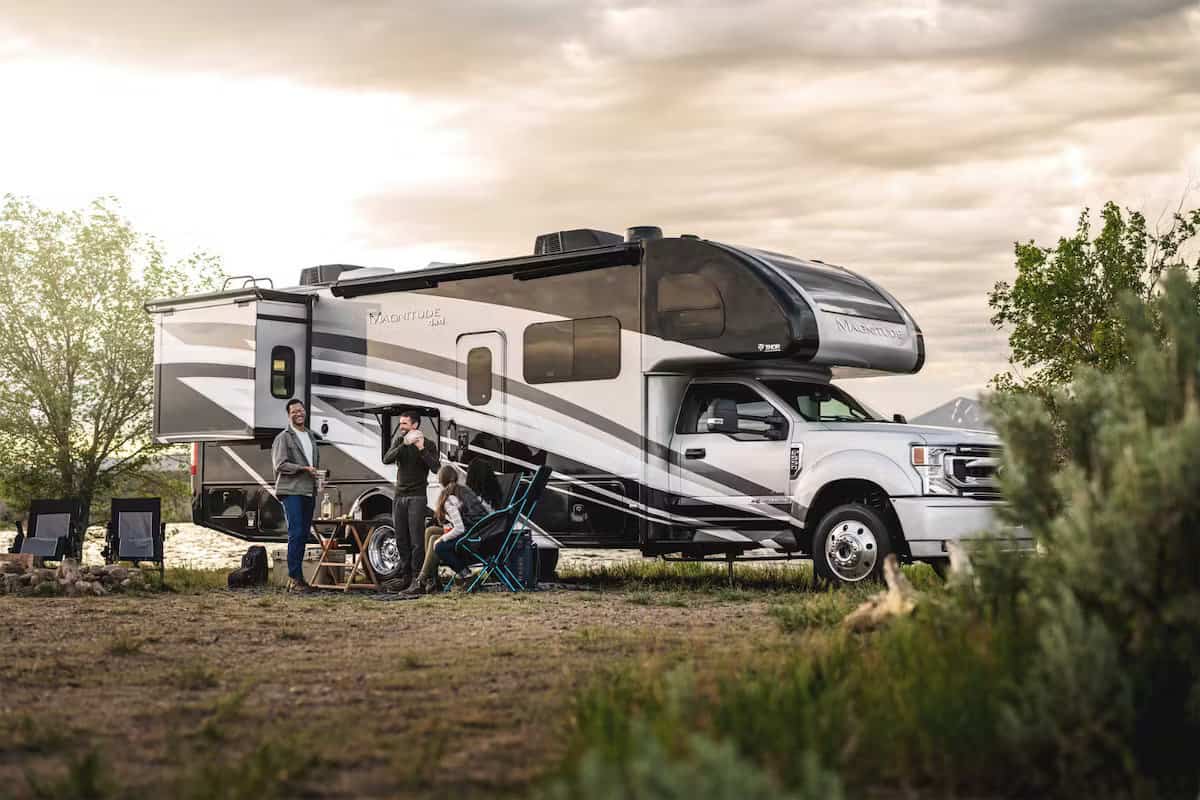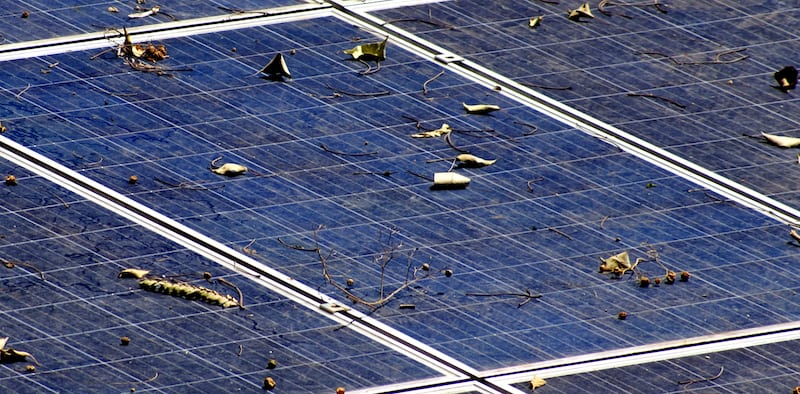
Supporting small US businesses – In partnership with Awesome Products Co.
How Dirty Solar Panels Can Affect Your Energy Output & Cost You Money
The projected energy figures claimed by solar panel manufacturers and installers are based on the optimum performance of clean solar panels. A build-up of dirt, dust, etc. can adversely affect the panel’s ability to meet those projections. So, it is important to clean solar panels in order to get the maximum power and to protect and maintain your investment.
The Solar Energy Power Association notes that dirty solar panels can lose 20% of their energy output. The National Renewable Energy Laboratory puts that figure even higher, at 25%. Recent university research has shown that a dirty solar panel can lose 50% of its efficiency compared to a clean solar panel. That’s a lot of potential power you have paid for but are not receiving!
The challenges RVers face while cleaning solar panels
Because of travel and where you are staying, the panels on RVs need more frequent cleaning than panels on houses and buildings. Dust conditions while traveling, truck exhaust on roads, smoke from campfires, grease and cooking smoke, wildfires, pollen, travel on dirt roads, and dirt in RV parks and campsites stirred up by RV movement all contribute to dirty solar panels.
Plus, when your RV has solar panels, you park in the sun so they can deliver electrical power. But because you are in the sun, your RV needs more power for cooling than it would in a shaded environment. All the more reason for them to work efficiently!
Why rainwater alone isn’t enough to clean your solar panels
RVers might be tempted to ask, “Isn’t rain good enough for cleaning solar panels?” Absolutely not! A good way to illustrate why rainwater will not clean solar panels is by looking at your car windshield. If you didn’t clean your windshield for six months, how much visibility would you lose? If left, the grime on your windshield would accumulate and eventually turn green.
Even if the car is rained on, the rain contains airborne dust particles that settle and attach to the surface after the rainwater evaporates. When we use our windshield wipers, we clean the center of the screen, but where the wipers do not reach, there is a film of dirt.
The entire surface of your solar panel is in precisely the same condition as the edge of your car’s windshield because they are both exposed to the same elements. The loss of light causes a loss of visibility through your windshield. As a result, the same principles apply to the cleaning of solar panels. Maximizing the amount of light that enters the solar panel is crucial. After all, that is the reason you have them!
Non-chemical mandates at campgrounds
Solar panel manufacturers warn against using chemicals to clean your panels, even vinegar and water, as they will harm the anti-reflective film applied to the top of each solar cell. Without it, the cells would be less efficient, reflecting more light away rather than absorbing it into the silicon. This layer protects the sensor screen beneath it and is made of silicon nitride or titanium oxide. This is the layer to be concerned about when cleaning to improve panel efficiency, not what is underneath it.
“Soaps can leave a film or residue that not only shades panels like the dirt that was just washed off, but it can also encourage dirt to stick and build up faster”
Daniel Green – solarpowerworldonline.com
Many RV parks do not allow the use of chemicals to clean RVs inside the park anyway. Plus, these chemicals would drip down the side of your RV, causing you to clean that up. So, what is the best way to clean them?
Which products are safe for cleaning solar panels?
As stated earlier, this does not have to be a hard or tedious job, but you must exercise a little care. An anti-reflective film is applied to the top of each solar cell. Without this, the cells would be much less efficient: more of the light would reflect away rather than be absorbed straight into the silicon. This layer protects the sensor screen underneath it. This layer is often made of silicon nitride or titanium oxide. This is what you have to be concerned about when cleaning to improve the efficiency of the panel, not what is underneath it.
So, what is one of the best ways to clean solar panels safely and without harmful chemicals? Experts recommend placing a little hydrogen peroxide on a Bugs Off Pad. If you’ve been an RVer for a while, this is the same Bugs Off Pad that you’ve been using to remove bugs from the front of your truck or RV for years. The Bugs Off Pad does not scratch delicate surfaces, and with light hand pressure, it also cleans your solar panels very effectively with little effort.
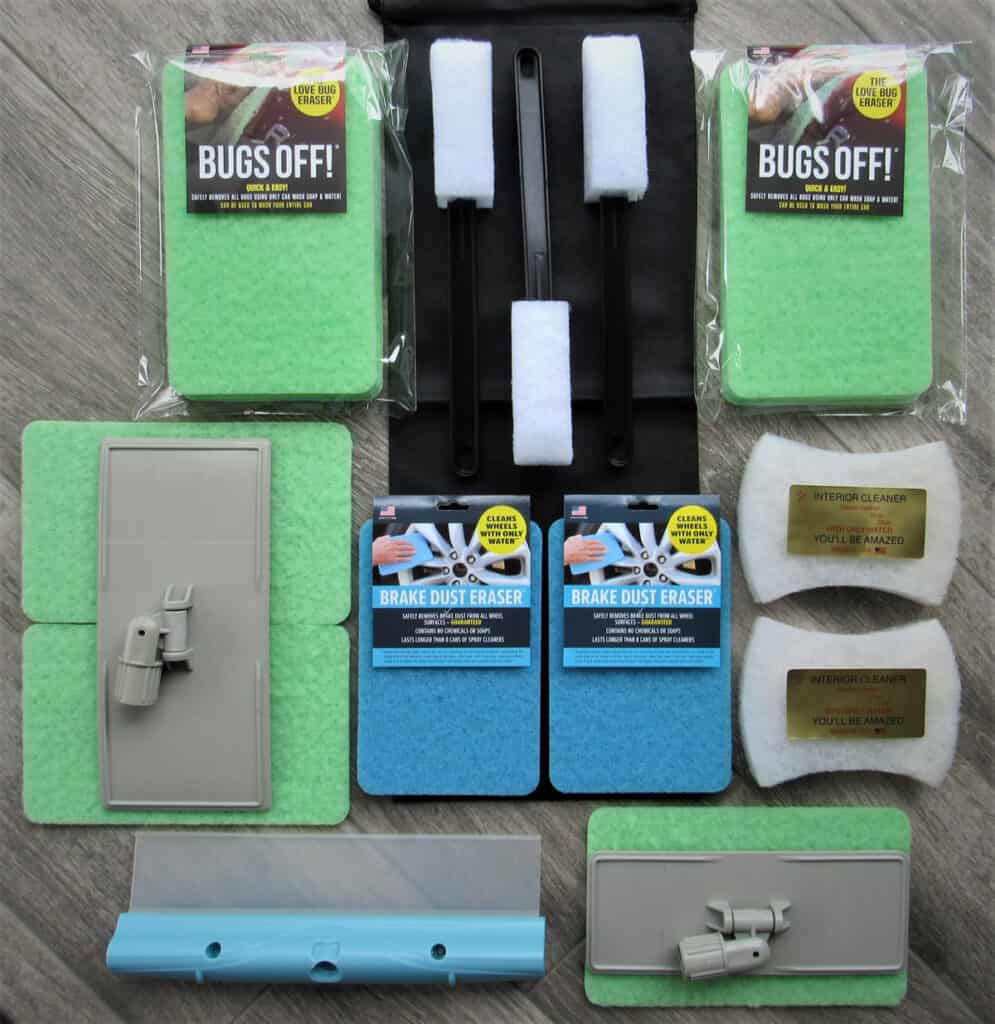
How to clean solar panels
- Obtain a bottle of hydrogen peroxide (available in drug stores, Dollar Stores, Walmart, etc).
- Clean your panels when they are cool to the touch (morning, evening, or cloudy days).
- Turn off your solar panels before cleaning and do not touch the underside of the panels.
- Remove obvious debris such as leaves and sticks by hand to avoid scratching.
- Wet the panel with water from a hose or, if in a campground that does not allow washing, a very wet microfiber towel to remove dust, dirt, etc. Distilled water is even better to use.
- Clean using chemical-free Bugs Off Pads. The last thing you want to do is use chemicals that will react to the surface of the solar panels, potentially clouding them and diminishing their effectiveness, or worse, damaging them permanently. Bugs Off Pads are also American Made and guaranteed to your satisfaction for 60 days.
- Immediately dry the panel using either a silicone blade squeegee or a microfiber towel. If you are in an area that has “hard” water and you let it dry you will notice spots on the surface as the water evaporates and the calcium is left behind. Proceed to the next panel.
Accessing the solar panels
The biggest challenge for RVers is simply accessing the solar panels to clean them. While many might assume that you’ll have to get on the roof for cleaning solar panels, it could be done from a tall ladder using the right products. Most RVers have learned they need to get on the roof periodically anyway. Why not take an opportunity during your next roof inspection for cleaning solar panels?
By attaching the Bugs Off Flat Holder to a standard threaded pole, you can reach the solar panels whether you are on the roof or simply next to it on a ladder. Add a spray bottle with some hydrogen peroxide and a hose, and you can easily clean solar panels in no time. Of course, anytime you are on a ladder or your RV roof, be safe and careful.
Conclusion
Cleaning solar panels doesn’t have to be hard, but it does have to be done. Doing it safely involves preparation and the right tools. Like any part of your RV, attention to detail and timely maintenance are key to protecting your investment and enjoying the RV life.
Related articles:
The post How To Keep Your RV Solar Panels Clean And Efficient appeared first on Camper Report.


